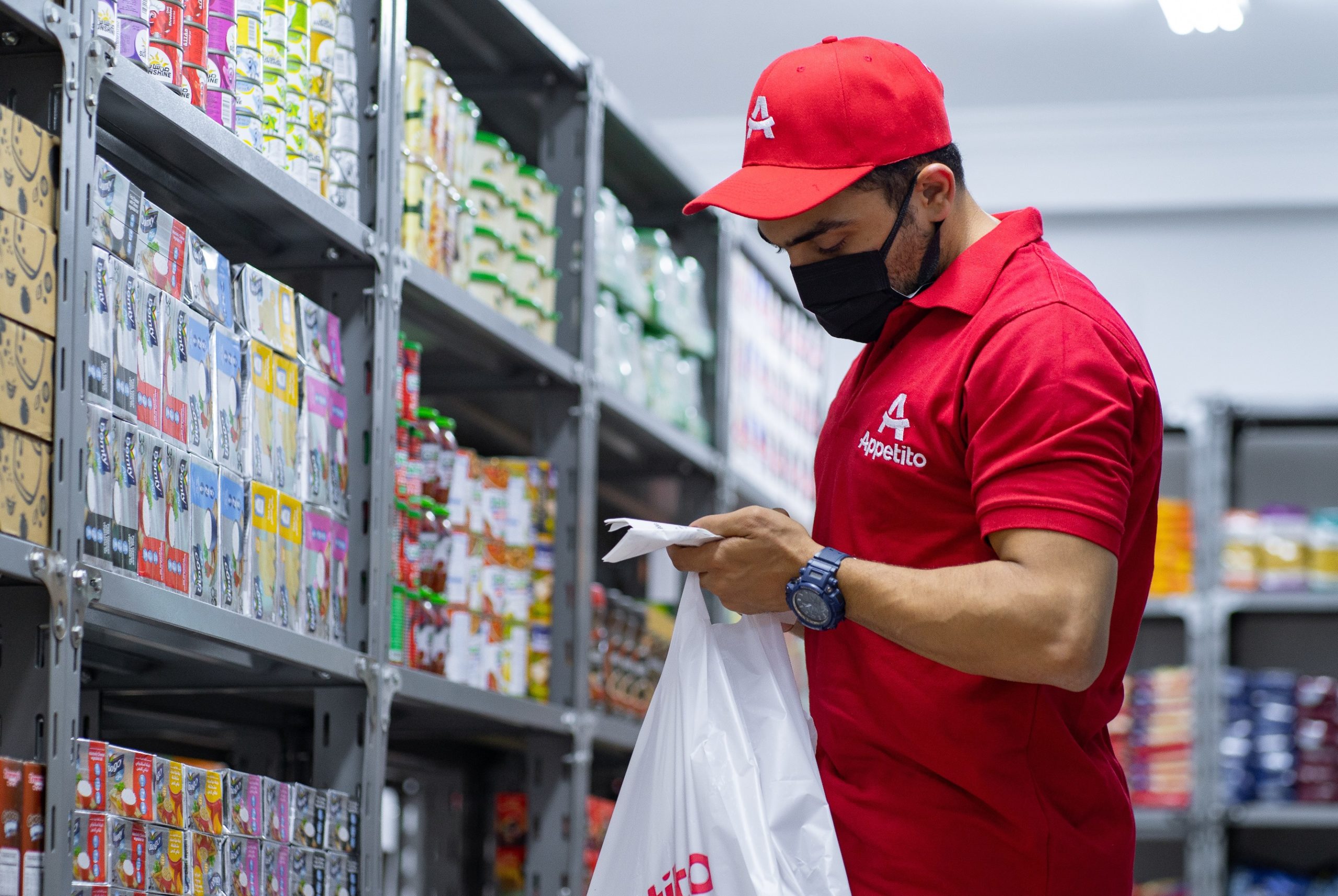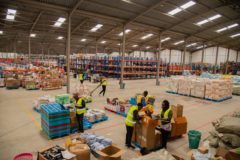In Alexandria, Egypt’s famous port city, you can drop into any corner store to pick up eggs for an evening meal. Shoppers line up at Spinneys, one of Egypt’s oldest grocery store chains, or any of the other popular hypermarkets to buy the week’s groceries. And oud voices haggling over the price of exotic fish in Al Mansheya’s alley markets is not uncommon.
It is the only way most people know to shop. Carrefour’s—a popular shopping mall in the City Centre—still gets large crowds during peak hours, and the Souq Al Barsim near Alexandria Corniche is still a bustling open market any day. But more than a few Egyptian grocery shoppers are adopting a new buying behaviour—tapping their smartphones to order everything they need to make the next meal, from cereals to fresh food.
“It’s a huge market, and it’s highly fragmented and multi-layered,” Shehab Mokhtar tells TechCabal.
Mokhtar is the founder and CEO of Appetito, an on-demand grocery retail business that delivers groceries to users from a small network of dark stores in Cairo. The press statement announcing its $2M pre-Series raise says Appetito now delivers 2,000 items from 12 fulfilment centres every day.
Unlike most popular on-demand startups in the grocery business, Appetito doesn’t promise quick deliveries. Instead, Mokhtar says Appetito offers 60-minute or even weekly scheduled deliveries and an opportunity to save on prices. This “quick-commerce” startup is betting that slow is good business and Egyptians won’t mind waiting for an hour for next week’s groceries to reach their doorsteps. Like Getir, its Turkish peer in the quick-commerce business, the Egyptian on-demand grocery startup wants to be as close as possible to its Egyptian customers.
How? By creating a network of micro-fulfilment centres located minutes away from the homes of Appetito users.
The Getir framework for last-mile distribution.
Only the red-painted motorcycles that zip in and out of the quiet neighbourhood betray the true nature of the small building where a gloved picker emerges once every few minutes to hand a waiting rider branded packages. This is one of Appetito’s dark stores in a Cairo suburb. By the end of this year, Mokhtar says Appetito will have expanded its dark store network to 3 cities—Cairo, Giza, and Alexandria. The company plans to add 50 more dark stores every year until 2024.
“Dark stores” are shops that don’t sell directly to customers. Instead, they are micro-fulfilment centres for orders that have come through digital platforms. Because customers don’t have to enter the shops, dark stores have more space to store inventory and quickly and accurately fulfil orders.
Inside any of Appetito’s 12 dark stores, pickers browse a list of items from an online order and move around the tiny aisles collecting the items and packing them. FMCG suppliers like Unilever, Henkel, Procter & Gamble, and Kellogg’s deliver items in bulk to these mini-warehouses. In contrast, perishable food items are shipped directly or stored in better-equipped facilities.
Appetito does not own these mini-warehouses. It operates a franchise system where local partners provide some of the capital and manage in-store operations. Appetito only helps with hiring and stocking the stores and its proprietary inventory management software.
In addition to sourcing its products directly from leading FMCG manufacturers, Appetito also sells its private label products and collects a fee for advertising suppliers’ products on its app.
Mokhtar says his goal is to build Egypt’s operation and technology infrastructure to connect brands with customers and provide “a convenient and affordable experience” with flexible payment options. If everything goes according to plan, the shoppers who do their grocery shopping in one of Alexandria’s many street markets will have one more option for weekly restocking—their smartphones.
Stephen Deng, Partner at DFS Lab says his venture capital firm are, “big believers that dark stores represent a shift in last-mile retail that’s here to stay.”
But dark stores are not chugging away unchallenged.
In Europe, for example, their pandemic-spurred growth has attracted the ire of city governments. Some of them have even called them a “blight”, which is ironic since the very restrictions these governments enforced enabled dark stores to thrive. But these regulatory setbacks offer startups like Appetito a glimpse of what to expect when 150 dark stores begin delivering store-keeping units (SKUs) numbering hundreds of thousands a day.
But regulatory hurdles are just one of many challenges they will face.
The last-mile question
Digital commerce entrepreneurs often say they are solving “fragmented” buying and selling. That is partly true. When you shop for groceries through Appetito’s app, you don’t have to visit multiple stores yourself.
But there is a different perspective. One that looks at the story of digital commerce as an ongoing attempt to aggregate the act of buying while simultaneously separating the act of buying to an online frontend for ordering and paying for goods, inventory management software and the dozens of motorcycles zipping through traffic to deliver orders.
In other words, digital commerce, especially the quick-commerce variety, is fragmentation on motorcycles.
As pandemic restrictions fade, however, the question at the heart of dark-store powered quick-commerce is changing.
With home deliveries returning to being a convenience instead of a necessity and a brewing economic downturn, the emerging question is, what do customers want? Groceries and home cleaning supplies delivered in 15 minutes? Or groceries bought at the lowest prices?
The best aggregators will win as a population grappling with rising inflation post-COVID interventions tests on-demand grocery startups. One recurring request on Appetito’s Facebook page is for discount codes for the day.
If we can draw on lessons from previous economic downturns in the region, how much “aggregation” will save for the consumer will play a more vital role than how fast the order is delivered. Even Getir is opening its dark stores for nearby shoppers to pick up their orders. In Egypt, offline retail shops are just around the corner.
Mokhtar seems to understand this. He told TechCrunch in an earlier interview, “We’re trying to mix between affordability and convenience. If we’re going to go only for the convenience, which is 10 or 15 minutes, that’s going to be at the expense of affordability,” Mokhtar said. “And this is something we do not seek or even try to scale in Egypt or the countries that we are trying to penetrate going forward.”
If digital commerce is a bet that convenience generates orders, Uber-for-groceries startups will need to show how dark store franchises make the business maths work. Appetito is the leading case study candidate for this in Africa.




















